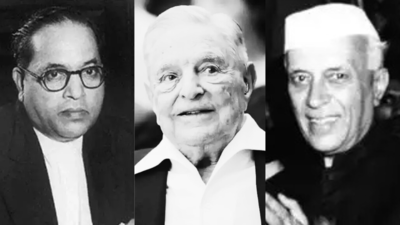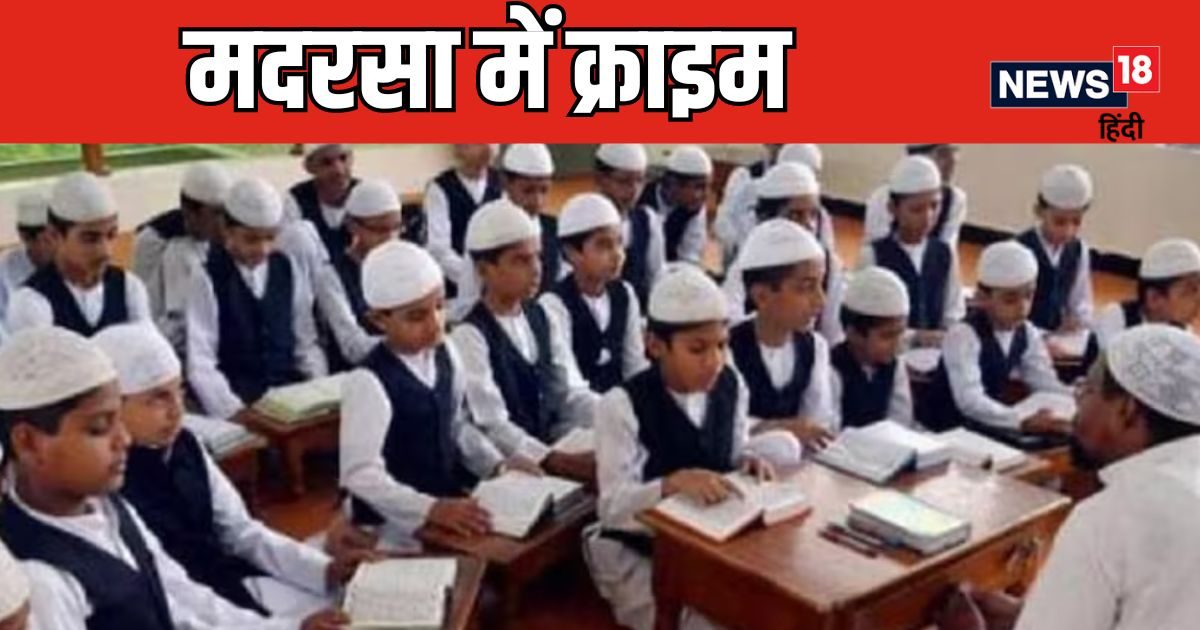NEW DELHI: As various dictionaries selected their ‘word of the year’, political leaders in India drew upon several historical figures as fuel for their political narratives in 2024.
Whether these personalities are aware of their newfound fame or not, they have undeniably influenced Indian politics, including the Lok Sabha elections, assembly polls, and parliamentary sessions.
While quantifying their impact on election outcomes may be challenging, their influence in Parliament has been evident, with political leaders sharply debating their legacies.
Ambedkar’s legacy
BR Ambedkar‘s name resonated repeatedly (at least 6 times) in Parliament this year, especially as the Constitution celebrated its 75th anniversary. The custodians of the Constitution engaged in fierce debates over its preservation, with Ambedkar’s spirit invoked frequently.
As the Constitution turned 75 this year, ‘the red book’ existed in theory and Ambedkar was present in spirit as the Parliamentarians took to the streets to prove who was better at keeping the Constitution alive.
The narrative surrounding the Constitution intensified during Lok Sabha campaigning, where the Congress party accused the BJP of “destroying the Constitution” if it were to regain power. This accusation was linked to the ruling party’s stance on caste surveys and corporate policies. In response, Prime Minister Narendra Modi countered that it was Congress that had attempted to “destroy the Constitution” by imposing Emergency measures in the past.
Following the elections and formation of the government, opposition leaders took their oaths with the Constitution in hand to make a statement.
The winter session of Parliament saw continued rhetoric from opposition leaders claiming that the BJP was undermining constitutional values.
The last straw was, home minister Amit Shah’s comment on the frequent invocation of Ambedkar’s name by opposition leaders.
“Abhi ek fashion ho gaya hai – Ambedkar, Ambedkar, Ambedkar, Ambedkar, Ambedkar, Ambedkar … If they took God’s name so many times, they would have got a place in heaven for seven births,” Shah stated. This led to demands for an apology and even calls for his resignation from opposition leaders.
Tensions escalated outside Parliament on the last day of the session, resulting in injuries among several leaders. BJP MP Pratap Chandra Sarangi accused Congress leader Rahul Gandhi of pushing an MP, while Gandhi denied this and claimed that BJP MPs obstructed him as he entered Parliament.
Nehru and Savarkar: A political tug-of-war
The Centre and the opposition seem to be stuck in a loop of digging up the past.
The ongoing political discourse has also seen a resurgence of debates surrounding Jawaharlal Nehru and Vinayak Savarkar.
The central government has often blamed Nehru for various perceived failures in contemporary India, while opposition parties have invoked Savarkar to counter these claims.
After Amit Shah’s comments regarding Ambedkar, BJP leaders highlighted alleged animosity from Nehru towards Ambedkar.
BJP president JP Nadda claimed that Nehru harbored “unfiltered hate” towards Ambedkar and pointed out instances where Nehru expressed satisfaction over Ambedkar’s absence from his cabinet.
“I thought of sharing some facts to illustrate the deep Congress hate towards Dr Ambedkar. Pandit Nehru hated Dr Ambedkar. Yes, it was unfiltered hate. That is why Pandit Nehru got Dr Ambedkar defeated twice (in elections),” Nadda said.
“Nehru was proudly writing to people overseas, expressing joy that Ambedkar was no longer in the Cabinet,” he added.
In contrast, Congress leader Jairam Ramesh criticised PM Modi for using Nehru to distract from his own failures and current challenges facing the nation.
In this whole he-said-he-said game, Shiv Sena (UBT) leader Aaditya Thackeray had a suggestion for both the sides: “You must have heard (Congress leader) Priyanka ji (saying) that how long are you going to invoke Nehru. I agree with her that both Congress and the BJP are national parties and they should not go into the past, in history, but talk about future.”
The Soros controversy
The winter session of Parliament was also marked by discussions surrounding George Soros, a 94-year-old Hungarian-American financier-philanthropist who has become a focal point of criticism from the ruling party.
The BJP accused Soros of attempting to destabilize India, particularly during moments when Gautam Adani faced scrutiny following reports such as Hindenburg’s.
This animosity towards Soros can be traced back to his comments suggesting that PM Modi would have to address questions regarding allegations against Adani.
Since then, the BJP has leveraged Soros’ name in political discourse, alleging connections between him and Congress leader Sonia Gandhi while questioning why Soros’ businesses remain operational in India if he is indeed a threat.
Congress criticiced the BJP government, questioning why, if Soros was involved in anti-India activities, the government hadn’t shut down his businesses in the country, closed funds linked to him, or requested the US government to extradite him for action.
The controversy hit the international stage when BJP leader Sambit Patra said in a media briefing that “50 percent of OCCRP’s (outfit for investigative journalists) funding comes directly from the US State Department … [and] has served as a media tool for carrying out a deep state agenda”.
US officials quickly stamped out the allegations, describing BJP’s accusations as “disappointing” and reiterated their commitment to media freedom globally.
As India moves into another year filled with parliamentary sessions, figures like Soros, Ambedkar, Nehru, and Savarkar are likely to continue dominating discussions. However, whether these debates will occur within the parliamentary halls remains uncertain.




